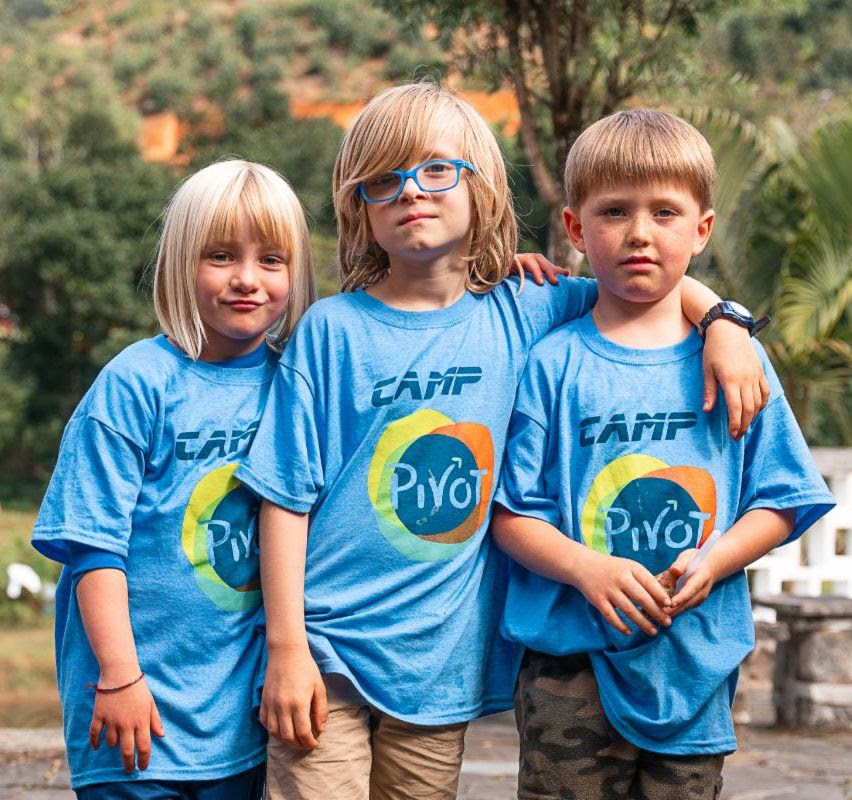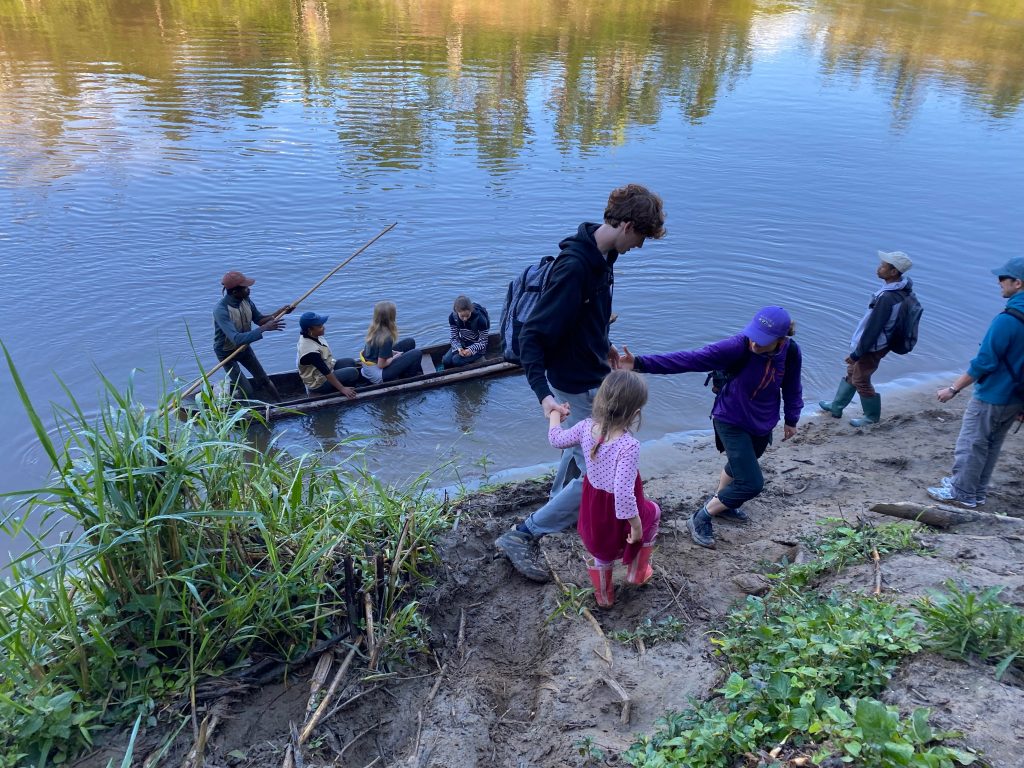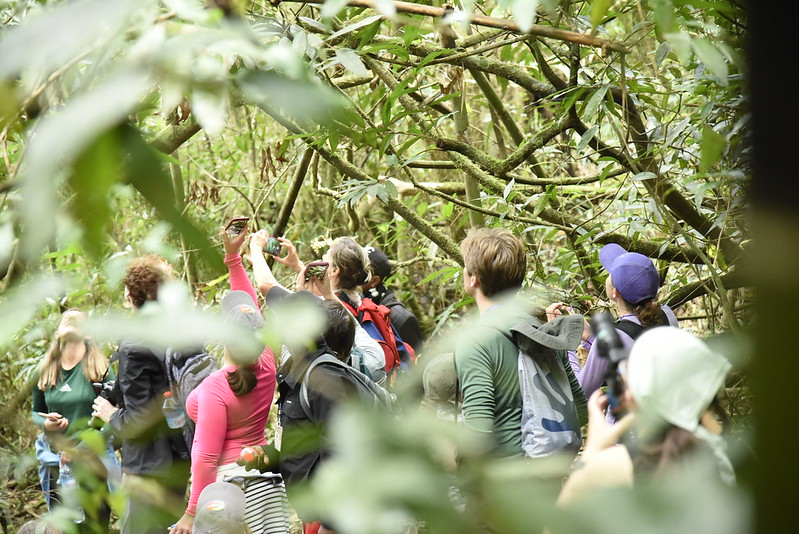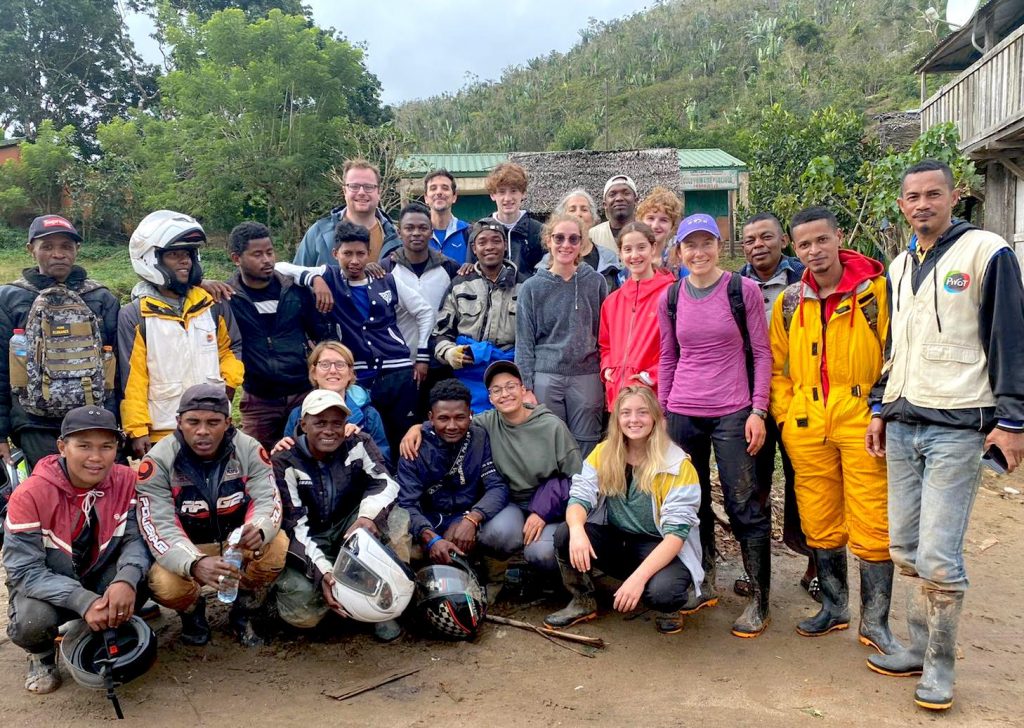19 Aug Immersion Week 2022 Recap
Every July, Pivot invites supporters, along with their friends and family, to spend a week in Ranomafana, immersed in our work. To support Pivot is to know it, and we’ve been honored to witness dozens of supporters deepen their support through experiencing the work firsthand. As an important part of that experience, we see value in bringing families into the fold in order to foster meaningful lifelong relationships.

When ED Emeritus Tara Loyd first started bringing her children to Ranomana during the frequent work trips of Pivot’s earliest days, she was immediately struck by what a special and easy place it was to introduce to others. It felt (and still feels) gentle, safe, and welcoming, and the unique natural environment adds a layer to the experience. From early Board trips that welcomed all family members, we began to build out the concept of Immersion Week by offering “Camp Pivot” for kids, volunteer opportunities for teens, and immersive experiences for adults, so that families could have experiences both separately or together. These activities are always open to the children of Pivot’s 250 Madagascar-based staff members as well, with the intention of cultivating cross-cultural experiences that foster and enrich connections within our community.
While this special week takes a good deal of coordination from the team on the ground each year, it represents a chance to mutually acknowledge and celebrate the work of our staff and those who make it possible through their support.
Immersion Week 2022 had an especially strong “friends and family” feel to it. Anticipated as Tara’s last one in her role as ED, she brought her children, niece, and two dear friends and their children. Two children of Board members each also made their first solo trips to Madagascar: Emily Della Pietra as a college student with career aspirations in healthcare, and high school junior Michael Herrnstein who tackled various volunteer opportunities during his month on the ground (you can read Michael’s field note where he shares personal reflections on Pivot’s past, present, and future).

Additionally, Dr. Dee Jordan, a researcher on the Pivot Science team, and Dr. Miriam Silman, a Pivot volunteer who brought her daughter along, joined the trip as professionals who have also supported Pivot staff through diversity, equity and inclusion training as well as secondary stress support.
A long-time visitor to Madagascar who learned of Pivot when helping the child of a Malagasy friend seek healthcare, Sophia Hilton became a Pivot supporter years ago, and for the first time brought her 5-year-old son Hendrix with her for the experience. And, last but certainly not least, we were honored to have representatives from two of our key funding partners, Blain Teketel from Dovetail Impact Foundation and Irene Amodei from Cartier Philanthropy, who joined the week along with family members to experience the work in person.

The group, composed of those mentioned above plus several other dear friends of Pivot’s international team, built their own individual schedules for the week. Each of the 20 participants chose from activities ranging from health facility tours to cultural experiences, opportunities to discover the area’s natural surroundings, downtime to explore downtown Ranomafana, and plenty of large group meals with members of the Pivot staff (who were thrilled to introduce them to the energetic Malagasy song and dance traditions often enjoyed at social events).
Over the course of the shared experience, the group built connections to the work, to the place, and to one another and left with memories for a lifetime. To quote Irene’s reflection on the experience:
“I joined ‘Pivot Immersion Week’ this summer, with my husband and 14-year-old daughter. It was a gift. To better know Pivot’s community from the inside, to apprehend the magnitude of Pivot’s ambition and the many challenges it entails, to share views and perspectives with a truly diverse group (an art teacher, a trauma psychologist, a marine researcher, a foundation’s investment manager, and a bunch of amazingly engaged teens).
I met plenty of people […], most of the staff […], chatted with them, ate with them, danced and traveled long distances with them (by foot, car, bus, and motorbike!). My family was with me all along, and that made the experience even more precious and relevant. Somehow, Pivot became part of my family’s memories.
All of the sudden, ‘Health for All’ is not a slogan anymore, and becomes a plan.”

If you’re reading this, we already consider you part of the Pivot family, and hope you’ll consider participating in Immersion Week in the future. For 2023, we welcome all to join us on the ground for Immersion Week from July 24 to 28.
NOTE: We offered a Virtual Immersion Week in 2020 when travel restrictions were in place, and it has become a timeless way to feel a part of the place and work from afar. Check it out to get a sense of some of the experiences that await you and your family in Madagascar!
